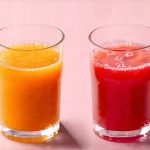The recent surge in wellness trends has brought forth various dietary practices promising detoxification, weight loss, and overall improved health. Among these, fruit juice cleansing – often promoted as a quick fix for bloating and digestive issues – has gained considerable popularity, fueled by social media endorsements and celebrity testimonials. While the idea of flooding your system with vitamins seems appealing, the reality is far more complex. These cleanses frequently result in what individuals describe as “soft bowels” or frequent bowel movements, which are often misinterpreted as a sign of successful detoxification. In truth, this rapid transit time and altered stool consistency are generally indicative of significant digestive disruption, not cleansing, and can potentially lead to both short-term discomfort and long-term health concerns if practiced frequently or improperly.
The appeal lies in the perceived simplicity: replacing solid foods with only fruit juice for a set period (ranging from a few days to weeks) promises an easy way to “reset” your digestive system. However, this approach fundamentally disregards the intricate processes of digestion and nutrient absorption. The human body isn’t designed to thrive on liquid diets lacking essential nutrients like fiber, protein, and healthy fats. The resulting physiological changes, including drastically altered gut motility and microbiome composition, are often presented as positive outcomes when they’re frequently detrimental. It’s crucial to understand the mechanisms behind these effects – and why “soft bowels” aren’t necessarily a badge of honor but rather a signal that something is amiss.
Understanding the Physiological Effects
Fruit juice cleanses dramatically alter the digestive process in several key ways. Normally, digestion involves a carefully orchestrated sequence of events, starting with chewing to break down food mechanically, followed by enzymatic breakdown in the stomach and small intestine, and finally absorption of nutrients. Fiber plays a vital role here – slowing digestion, providing bulk for regular bowel movements, and nourishing beneficial gut bacteria. Fruit juice, even when “cold-pressed” or organic, lacks significant fiber content. This means food moves through the digestive system much more rapidly, leading to decreased nutrient absorption and potentially causing what’s often described as ‘soft bowels’.
The high sugar concentration in most fruit juices also plays a role. Fructose, in particular, can be poorly absorbed by some individuals, leading to osmotic diarrhea – where undigested fructose draws water into the colon, resulting in loose stools. Furthermore, this rapid influx of sugars can disrupt the delicate balance of gut bacteria, favoring less desirable species and potentially contributing to bloating, gas, and even long-term digestive issues. This disruption is often masked by frequent bowel movements that give a false sense of cleansing, when in reality they’re an indication of significant gut irritation.
It’s important to remember that the body has its own highly effective detoxification systems – namely the liver and kidneys. These organs are designed to filter toxins and eliminate waste products efficiently without requiring drastic dietary measures like juice cleanses. Focusing on supporting these natural processes through a balanced diet, adequate hydration, and regular exercise is far more beneficial than attempting to artificially “detox” with fruit juice. The notion of needing to cleanse often stems from misunderstanding how the body naturally works. If you suspect liver problems caused by high iron levels, consult a healthcare professional.
Long-Term Consequences & Nutritional Deficiencies
While short-term discomfort like soft bowels might seem manageable, frequent or prolonged fruit juice cleansing can have serious long-term consequences. The lack of essential nutrients – protein, healthy fats, vitamins (beyond what’s present in limited quantities in juice), and minerals – deprives the body of building blocks needed for tissue repair, immune function, and overall health. This nutritional deficiency can manifest as fatigue, weakened immunity, muscle loss, and even more severe health problems over time.
Moreover, repeated disruption of the gut microbiome can have far-reaching effects beyond digestion. The gut microbiome plays a crucial role in immune regulation, mental health, and even chronic disease prevention. Constantly bombarding the gut with sugar and depriving it of fiber creates an environment that favors harmful bacteria, potentially leading to inflammation and increasing the risk of conditions like irritable bowel syndrome (IBS) or inflammatory bowel disease (IBD). This is a critical point often overlooked in the promotion of juice cleanses. The temporary relief from bloating some experience may be outweighed by the long-term damage inflicted on their digestive health. Can frequent nausea be caused by acid reflux alone? Understanding your symptoms can help guide you to proper care.
Finally, relying on fruit juice cleanses can foster an unhealthy relationship with food and body image. It promotes restrictive dieting and perpetuates the idea that certain foods are “bad” and need to be eliminated, potentially leading to disordered eating patterns. A sustainable approach to health focuses on nourishing the body with a diverse range of whole foods, rather than engaging in temporary and often harmful restrictions.
The Role of Fiber & Gut Motility
Fiber is absolutely essential for healthy digestion. It adds bulk to stool, which helps regulate bowel movements and prevents constipation. More importantly, fiber acts as food for beneficial gut bacteria, promoting a thriving microbiome. Fruit juice, by its very nature, removes this vital component. Without sufficient fiber, the colon doesn’t have adequate material to move waste through efficiently, leading to faster transit time – and ultimately, soft bowels. This isn’t cleansing; it’s disruption.
The gut has an intrinsic motility pattern designed for optimal digestion and absorption. Juice cleanses significantly alter this rhythm. The rapid influx of sugars stimulates peristalsis (the wave-like muscle contractions that move food through the digestive tract), accelerating transit time. While this might feel like things are “moving” or being “cleansed,” it bypasses crucial stages of nutrient absorption, leaving the body depleted. Think of it as rushing a process that requires careful timing and balance; the end result is often incomplete and less effective.
- The average healthy transit time (time it takes for food to move through the digestive system) is between 24-72 hours.
- Fruit juice cleanses can reduce this to under 12 hours, significantly hindering nutrient uptake.
- Restoring a balanced gut motility requires reintroducing fiber-rich foods and supporting a healthy microbiome.
Debunking Detoxification Myths
The concept of “detoxing” is heavily marketed in the wellness industry but often lacks scientific basis. The body naturally detoxifies itself through the liver, kidneys, skin, lungs, and digestive system. These organs constantly work to eliminate waste products and toxins without needing external interventions like juice cleanses. In fact, these cleanses can actually put extra strain on these detoxification pathways by flooding them with substances they need to process.
The idea that accumulated “toxins” are released through bowel movements is a misconception. The vast majority of what’s eliminated in stool is undigested food and waste products from normal metabolic processes. Fruit juice cleanses don’t magically remove harmful toxins; they simply accelerate the elimination of everything, including essential nutrients. This can create a temporary feeling of lightness, but it comes at a cost to overall health. Can gut issues be caused by pesticides in our food supply? It’s important to understand potential environmental factors.
- The liver filters blood and breaks down toxins.
- The kidneys eliminate waste through urine.
- The skin eliminates toxins through sweat.
- Supporting these natural processes is far more effective than relying on questionable “detox” methods. Hidden gut issues revealed by advanced scan layers can provide valuable insights into your digestive health.
Alternatives to Juice Cleansing: Sustainable Digestive Support
Instead of resorting to restrictive juice cleanses, focus on sustainable strategies for supporting healthy digestion and overall well-being. This involves prioritizing a balanced diet rich in whole foods, including plenty of fiber-rich fruits and vegetables, lean protein sources, and healthy fats. Hydration is also crucial – drinking adequate water throughout the day helps maintain regular bowel movements and supports optimal digestive function.
Consider incorporating probiotic-rich foods like yogurt or kefir to nourish beneficial gut bacteria. Additionally, managing stress levels and getting regular exercise can significantly improve digestion and overall health. The key is consistency and long-term lifestyle changes, rather than quick fixes that ultimately do more harm than good.
- Focus on whole, unprocessed foods.
- Increase fiber intake gradually.
- Stay adequately hydrated.
- Incorporate probiotic-rich foods.
- Manage stress levels through techniques like yoga or meditation.
- Prioritize regular physical activity. How to stop throat burning caused by acid reflux is a common concern for many individuals.
It’s vital to approach wellness with a critical eye and prioritize evidence-based practices over trendy diets. Soft bowels resulting from fruit juice cleanses are not an indication of health; they’re a warning sign that your digestive system is being disrupted. Investing in sustainable lifestyle changes – focused on nourishing the body with whole foods and supporting its natural detoxification processes – is the most effective path to long-term health and well-being. Can bloating be caused by blood sugar fluctuations? It’s important to understand the connection between diet and digestive symptoms. Can acid reflux be caused by a lack of stomach acid can be surprising, but it’s a possibility worth considering.


















